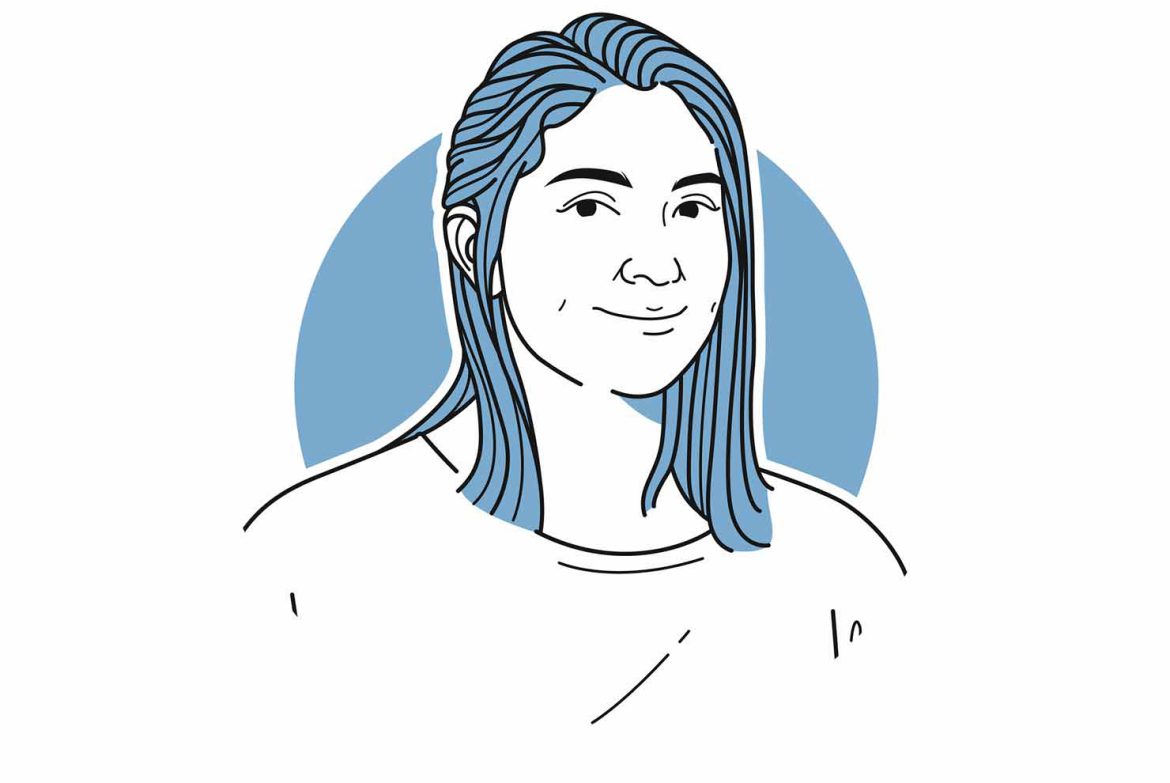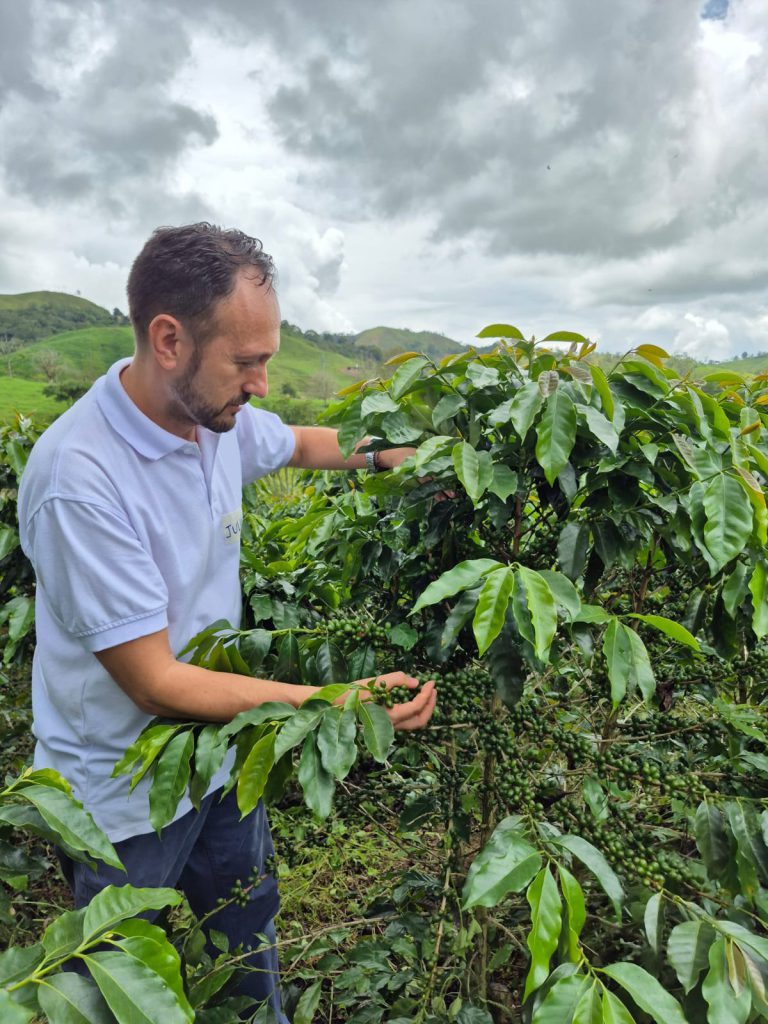Welcome to The Sprudge Twenty Interviews presented by Pacific Barista Series. For a complete list of 2025 Sprudge Twenty honorees, please visit sprudge.com/twenty.
In a coffee world that is riddled with uncertainty, it’s wonderful to know that there is such a woman as Yimara Martinez Agudelo out there working for us. The daughter of smallholder coffee farmers in Cauca, she has dedicated her professional life to coffee as well, and currently, the education and development of professionals in coffee growing lands.
In her capacity as the manager of The Coffee Quality Institute’s Post-Harvest Processing (PHP) Program, she has helped train an impressive group of skilled Processing Professionals as well as a handful of PHP experts as educators. It’s safe to say that Yimara is more than simply the steward of this impactful program. She’s built the program’s curriculum and content at this crucial time when the coffee processing space is experiencing so much rapid change and innovation. Yimara has emerged as a respected voice in the industry, but maybe more importantly, as a leader to the younger generation of coffee producers worldwide.
Under her direction, PHP has grown beyond expectations in recent years. She has forged new paths for this education worldwide—Uganda, Peru, Guatemala, Philippines, Rwanda, and most recently India. We all already benefit from her tireless work and can look forward to much more in years to come as she is just hitting her stride.
Nominated by Trish Rothgeb
How many years total have you worked in the coffee industry?
I have over 18 years of professional experience in the coffee industry, though coffee has been part of my life since childhood, growing up in the coffee-producing region of Tunía, Piendamó, Cauca, Colombia.
What was your first coffee job?
I started my coffee journey close to home, growing up in a coffee-producing region with parents who are smallholder farmers. From a young age, I was involved in every stage of coffee production, which gave me a deep appreciation for the crop and the people behind it. My first formal role was as a coffee taster (cupper) at the Federación Campesina del Cauca (FCC), working with around 800 smallholder families across Cauca to ensure quality and help bring their coffee to market. That experience showed me how quality, sustainability, and community are deeply interconnected, lessons that continue to guide everything I do in this industry.
Did you experience a life-changing moment of coffee revelation early in your career?
Yes, a life-changing moment for me came when I became a Q Grader. It allowed me to support many producers in my region through education and to create opportunities that inspire and motivate new generations. This experience truly changed my life and opened doors I never imagined coming from a humble family. It showed me how knowledge and skill in coffee can transform not just a career, but an entire community.
Is there a person or persons who served as your mentor early in your coffee career? How did they impact you?
The first people I think of are my parents, but besides them, one of the most influential mentors in my early coffee career was Don Alejandro Leonidas Jojoa, the leader of the organization where I worked. He was a true leader, kind-hearted, fair, respectful to everyone, and deeply committed to family, lasting friendships, and community work, where people, their rights, and their work always came first. From him, I learned the values of perseverance, hard work, and resilience. His words, “resist, persist, insist, and never give up,” still guide me today. He showed me that no dream is too big if you are willing to work for it, and he instilled pride in being campesinos. I deeply admire and am grateful for inspiring me to believe that we can make a meaningful contribution to the industry and to the lives of many people.
What is your current role in coffee?
I am an educator, training and supporting coffee producers in best practices for post-harvest processing, and I currently serve as the Manager of the Post-Harvest Processing Program at the Coffee Quality Institute (CQI).
What facet of the coffee industry has changed the most during your career?
Cupping.
What still surprises you today about coffee, or gives you joy?
What still surprises me and brings me joy about coffee is my own coffee farm and all the new things there are yet to learn. I love teaching and being around producers, sharing knowledge, and learning from their experiences; it’s a constant source of inspiration and excitement for me.
What’s something about the coffee industry you’d most like to see change?
I’d love to see more women and more people from coffee-growing communities in leadership and decision-making roles, so they can truly contribute and ensure the industry both understands and supports the real needs at origin, as well as the development that allows smallholder producers to truly thrive. I also believe it’s time to change the narrative around smallholder farmers, not as beneficiaries, but as true partners. Producers are the ones who make the entire industry possible; without their coffee, none of our roles would exist.
What is your most cherished coffee memory?
My most cherished coffee memory is being able to support my parents in fulfilling their dream of having their own coffee farm, and also being able to buy my own. That moment was very special because it represented both honoring my family’s hard work and fulfilling my own dreams.
Do you make coffee at home? If so, tell us how you brew!
Yes, I do! It depends on the day; if I’m at home on a busy workday, I usually brew drip coffee. But when I travel, I always carry my V60 kit with me, which I really enjoy using.
What is your favorite song/music to brew coffee to?
I love music in general, so I don’t really have one favorite song; it depends a lot on my mood. But I especially enjoy my Colombian music, particularly salsa, cumbia, folklore, and even reggaeton when I’m brewing coffee.
What is your idea of coffee happiness?
For me, coffee happiness is seeing producers proud of their work, knowing their coffee is valued and enjoyed. It’s also those simple moments, brewing a cup on my own farm, sharing it with family or friends, and feeling the connection between the people, the land, and the cup.
If you could drink coffee with anyone, living or dead, who would it be and why?
I do have the chance to share coffee with many people, but if I had to choose, I would always choose my mother, who inspires me every day to be better and to remain humble.
What’s one piece of advice you would give someone getting their start in the coffee industry today?
My advice would be to stay curious, never stop learning, and remain humble. Coffee is an incredible industry with many opportunities, but it requires dedication, patience, and respect for the people who produce it. Build strong relationships with producers and others in the industry, listen to their knowledge, and always remember that quality and sustainability go hand in hand. The more you invest in learning and understanding every part of the chain, the greater impact you can make.
The Sprudge Twenty feature series is proudly presented by Pacific Barista Series.



